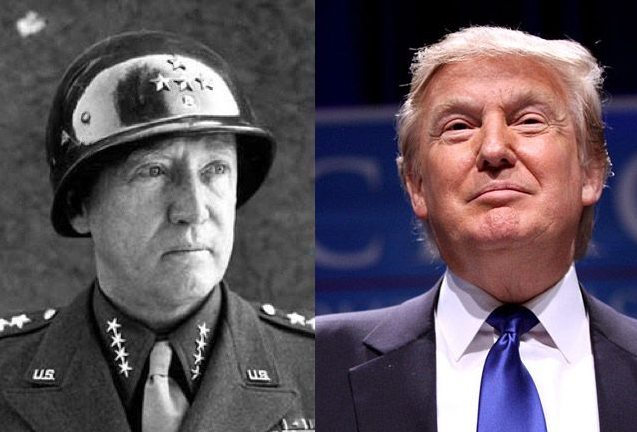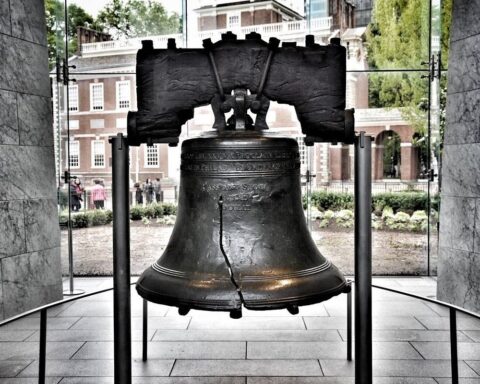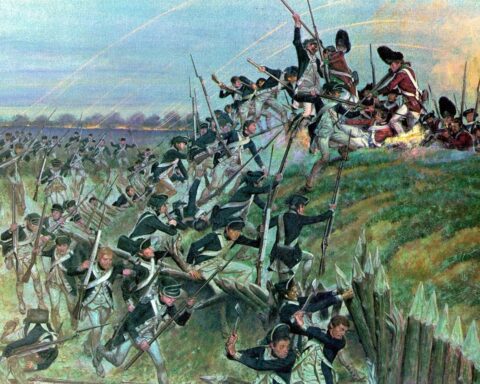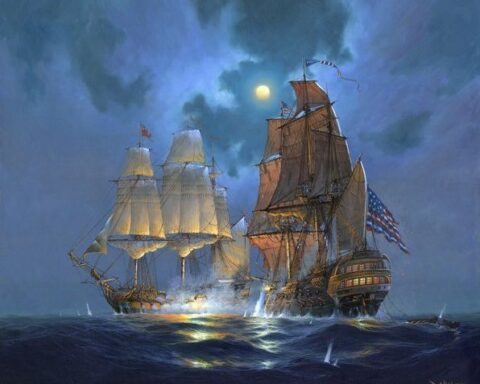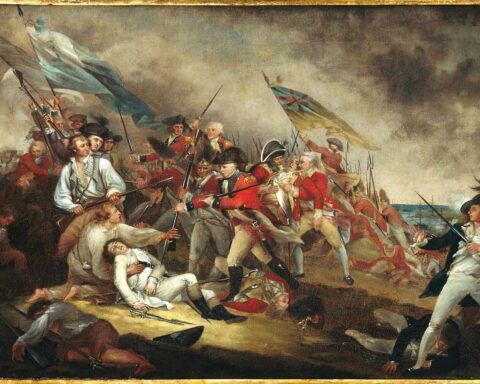As 1941 was winding down, a string of victories showed the Wehrmacht to be unstoppable. Between June 22 and early December, 1,800 miles were covered by 4 million Axis soldiers who sat on the outskirts of Moscow.
The winter of 1777-1778 was harsh. Malnutrition, disease, and exposure killed over 2,500 American soldiers who didn’t desert the garrison at Valley Forge.
History is replete with stories of leadership and plans carried out, winning the day when the odds said defeat was certain (I was going to post a link to the outnumbered Brits who mounted a bayonet charge against the Taliban/insurgents and won, but there’s been more than one incidence of this in the 21st century).
June 16, 1815 the Grande Armee of Napoleon defeated a Prussian army under Field Marshal Blücher near Ligny (in present day Belgium). Blücher was able to extract most his army from the battle and sought to join forces with another Prussian Army stationed at Liège. This Prussian force, fleeing the numerically superior Armee of Napoleon, sought to join with another army of the Seventh Coalition led by the Duke of Wellington that had fortified itself near a town named Waterloo.
There is a battle Napoleon is credited for winning where a French column under the command of Grand Marshal Ney, on the way to the battlefield, encountered the entire enemy army as they too were headed to the battlefield, column by column, each column defeated by Ney’s column, piecemeal, as he encountered them one at a time (the name of the battle escapes me at this moment). At this time, not only are the Seventh Coalition forces outnumbered by the French, they are scattered across the Belgium countryside, being hunted by a superior French force, seeking to destroy them, piecemeal. This was a perilous position to be in, immediate death was closer at Waterloo than at Valley Forge where death was slow and miserable, being overrun was as likely as Moscow with the Wehrmacht motoring towards it, it’s onion topped spires in the distance, and death was as certain as would face British soldiers, 200 years later, out of ammo, vastly outnumbered with nothing but bayonets and a leader with resolve.
Wellington’s plan hinged on holding the stone farmhouse compound owned by the Hougoumont family in the middle of the battlefield. Controlling the Hougoumont Farm would serve as a defensive work that would prevent a full French charge capable of overrunning Wellington’s forces. The plan was to hold the farmhouse till the Prussian column arrived.
Lord Wellington had put a Lieutenant-Colonel named MacDonald in charge of the Hougoumont Farm defense and when criticized that the farm house was indefensible against the French, Wellington’s response was, “You don’t know MacDonald!”
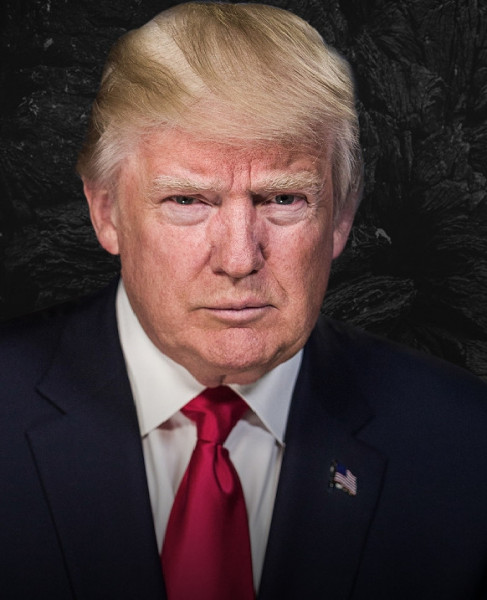
Today we sit here, watching history being made and many forget we know our Donald. Lists of his accomplishments are easily Googleable and the lists are long and full of significant accomplishments, North Korea’s nuclear ballistic program peacefully terminated, the Iranian nuclear program halted, a massive monkeywrench of peace thrown in the Mideast war machine after destroying ISIS, manufacturing jobs brought home, criminal trade deals that were looting the nation terminated, Space Force created, etc. Our Donald is a capable leader who executes effective plans and he can do this while fighting a hostile legislature.
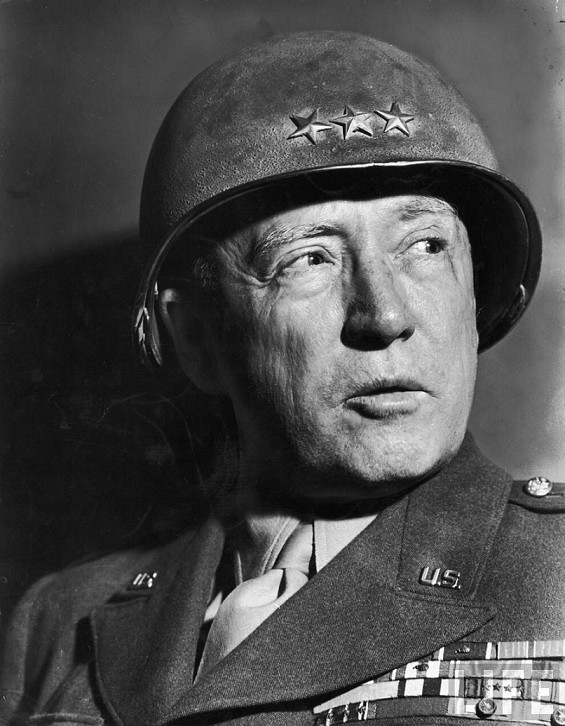
Look at Donald J. Trump, then look at General George S. Patton. Are there not similarities there? Both men are fighters who execute plans (Patton had the plan written to liberate Bastogne before the Germans surrounded it). It’s hard to believe President Trump had no plan to stop the blatant election fraud that was guaranteed to be committed by the Radical Left.
Don’t forget who president Trump is. Don’t forget how capable he is. He saw the Democrats stealing the election before 2016. He has a plan and he’s executing it right now. At times like this, history shows that leadership trumps advantage.

